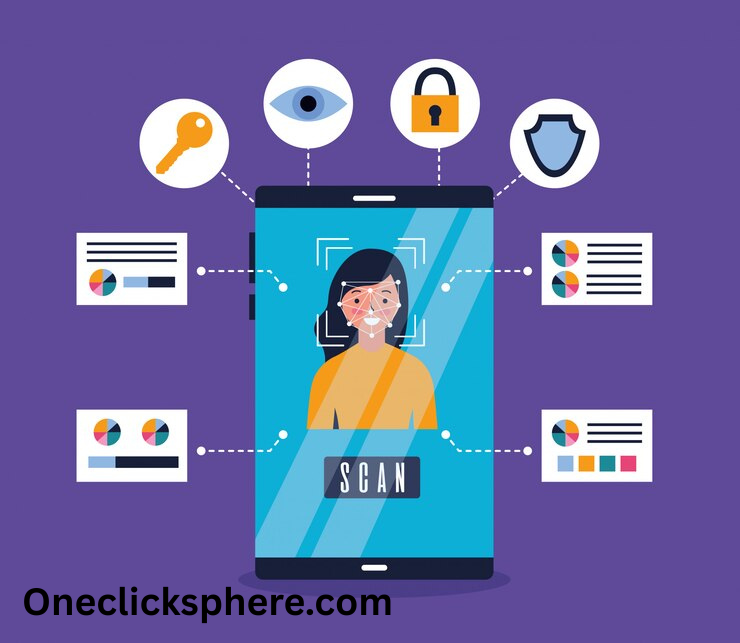Keeping your Android phone safe is essential. Today, we use phones for banking, chatting, shopping, and saving photos. If your phone is not secure, hackers can steal your data. But don’t worry. You don’t need to be an expert to protect your phone.
In this article, we’ll show you the top 10 Android security tips. These tips are easy to follow and will help you keep your device safe.
1. Always Keep Your Android Updated
Android updates fix bugs and security issues. If you don’t update your phone, hackers can use these bugs to attack your phone. Many people skip updates because they think it takes time or uses data. But updates are very important.
Turn on auto-updates if available. Check for updates regularly. Don’t ignore update notifications. Update apps too, not just the system. Even a small update can fix big problems.
2. Use a Strong Screen Lock
Locking your phone is one of the easiest ways to keep it safe. But many people still don’t do it. A lot of users don’t set any password or lock at all. This means that if their phone is lost or stolen, anyone can open it and see everything.
Setting up a lock screen is simple. Both Android and iPhone have this feature. You can also set your phone to lock itself after a short time of not being it. It’s best to keep this time short, like 30 seconds or one minute.
A six-digit PIN or passcode is better than a simple pattern. Patterns are easy to guess, and people can copy them just by watching you. A PIN or strong password is harder to crack. Some phones allow you to unlock the screen by drawing a pattern. This looks fun, but it’s not always safe. If your screen is dirty, someone might guess the pattern from the marks. That’s why it’s better to use a PIN or a password.
3. Install Apps Only from the Google Play Store
The Play Store checks apps for viruses and malware. Apps from other websites may not be safe. Some can steal your data or damage your phone.
Don’t download apps from links on unknown websites. Disable “Install from Unauthorized Sources” in the preferences. Read reviews and ratings before downloading apps. Avoid apps with low ratings or very few downloads. Stick with trusted sources like the Play Store.
4. Use Antivirus or Security Apps
A good antivirus app can scan your phone and remove threats. It helps catch malware before it can harm. Many free and paid options are available.
Choose antivirus apps that offer real-time scanning and app privacy checks. Some even provide anti-theft tools and web protection. Bitdefender, an antivirus Avast, Norton in and Kaspersky are popular examples.. Pick one that suits your needs.
5. Shut off Wi-Fi and Bluetooth while not in use.
Other people can see your phone while Wi-Fi or Bluetooth connectivity is enabled. Hackers can try to connect and steal your data. Turn off Bluetooth after using headphones or sharing files. Don’t connect to public Wi-Fi unless it’s trusted. When Wi-Fi is not reliable, use mobile data. Use a VPN for protection if you must use public Wi-Fi. This keeps your device hidden and safe.
6. Be Careful with Permissions
Some apps ask for too many permissions. For example, a flashlight app asking for access to your contacts or camera. That’s a red flag.
Open the App Permissions area in your phone’s settings. Check which apps can access your location, camera, and microphone. Remove unnecessary permissions. Say “No” if the permission doesn’t make sense. Only give permissions that the app truly needs to work.
7. Use Two-Factor Authentication (2FA)
2FA adds one more step to your login process.. The second code disables someone from accessing it, even if they get hold of your password.
Go to your Google Account settings and turn on 2-Step Verification. You can choose a method like text message, email, or an authenticator app. Apps like Google Authenticator or Authy are good choices. 2FA makes it harder for hackers to get in.
8. Backup Your Data Regularly
You could lose nothing if your phone gets stolen, lost, or exploited. Backups help you restore your photos, contacts, and files without stress.
Use Google Drive or other cloud services. You can turn on auto backup in your phone’s settings under System → Backup. Also, you may store your data on an SD card or a computer. Make backups weekly, or even daily, if your data is very important.
9. Use Secure Browsers and VPN
Some websites track you or carry viruses. Your online identity can be secured with a VPN and a secure browser.
Make use of browsers that keep trackers, such as Firefox Focus or Brave. A VPN keeps your access to the internet private and protects your location. Trusted VPNs include NordVPN, ExpressVPN, and ProtonVPN. Don’t click on unknown links or ads. Avoid entering personal info on random websites. This will help you browse safely and privately.
10. Log Out of Accounts You Don’t Use
If your phone gets hacked or stolen, your open accounts can be misused. Logging out of apps you don’t use often is a smart move.
Log out of banking and shopping apps after use. Use secure passwords, and don’t save them in the browser. Clear browser history and cache often. Use a password manager for better control. Keeping fewer accounts open means fewer chances for attacks.
Conclusion
Your Android phone carries a lot of your personal life — messages, photos, contacts, banking apps, and more. That’s why protecting it is not just an option, it’s a must. Following these simple tips can make a big difference in keeping your data safe. You don’t need to be a tech expert to stay secure — just a few smart habits are enough. Make security part of your daily phone use, just like charging your battery. A safe phone gives you peace of mind, and that’s worth it every time you pick it up.
FAQs
How to best secure your Android phone?
Use a strong screen lock, update your phone regularly, and download apps only from the Play Store. Also, use an antivirus and avoid public Wi-Fi when possible.
What is the best security for Android phones?
The best security is a mix of features like strong passwords, biometric locks, two-factor authentication, and trusted antivirus apps. Keeping your phone updated is also very important.
How to enhance Android security?
Limit app permissions, turn off Bluetooth and Wi-Fi when not in use, and use a VPN for safe browsing. Back up your data and use secure browsers.
Is there a 100% free antivirus?
Yes, there are free antivirus apps like Avast, Bitdefender, and AVG. They offer basic protection without payment, but paid versions have more features.
How to check phone safety?
You can check phone safety by scanning it with a security app, reviewing app permissions, and checking for software updates. Also, see if there’s any unusual battery or data usage.


One thought on “Top 10 Android Security Tips”